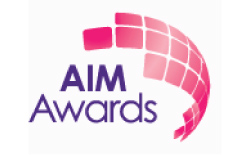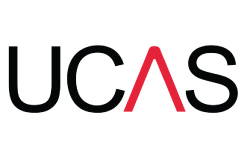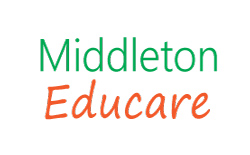Tablet use to facilitate the learning process
What are the benefits from using tablets in the classroom?
- A new way to communicate: for years, students and parents have complained about the use of standardized teaching that may leave many students in the dust, particularly those with learning disabilities. Tablets change all that by arming teachers with an array of teaching tools, including interactive games, video presentations and more. This way, teachers have a new approach to reach students who have had difficulty engaging with plain text on a page.
- Introducing new tools: tablets are versatile and allow students and teachers to explore concepts in ways that were never previously possible in the classroom. For example, applications can provide a learning social network where students can share ideas, ask questions and encourage each other, bringing more collaboration to the classroom. Teachers can also use tablets to screencast lessons (as part of the interactive whiteboard lesson) bringing the information directly to students rather than using the whiteboard. In addition, programs such as YouTube for Schools offer exciting videos to explain complex concepts.
- Saving paper: Tablets are quickly and consistently updated. This is not the case with handouts which can quickly become outdated. This means less wasted paper and an environmental win.
- Interactive textbooks and applications for language learning: Enhanced learning experience through careful and thoughtful selection of applications that meet the requirements of the Common European Framework. This increases the level of learning through interaction and participation.
- Enhanced engagement: All kids gravitate toward technology. Bringing Technology in the classroom will most definitely get students more excited than ever. When students are more engaged they absorb more.
- Providing video and supporting material: Tablets are masters at bringing video and other supporting material into the education environment. Through various apps video lessons can create interaction and creativity on another level.
- Speaking “their” language: students these days use tablets and mobile devices from an early age (some as early as 1 or 2 years old). By the time they are in school, it is second nature to use a tablet. The use of tablets in the classroom will keep their attention and resonate with students by aligning with how the new mobile generation wants to learn and communicate.
- Ready for Tomorrow: students today need to be technology literate. Tablets play a huge role in preparing our students for college and eventually their careers. As educators we must develop these necessary skills safely and responsibly as soon as possible. By avoiding tablets (or technology in general), students are unaware of their capabilities and the possibilities offered by new technology and are more likely to use it in the wrong way. By incorporating technology and tablets into the classroom environment, students are more likely to carry on learning anytime and anywhere (extend learning beyond the classroom).
- Personalized Learning: Having technology like tablets in the classroom can provide opportunities for students to be able to work and excel at their own level and pace. Educators can personalize lessons to fit each student’s progress.
What does research suggest regarding the use of tablets or similar technology in the classroom?
- 54% of students say they are more actively involved in courses that use technology as stated by the 2012 ECAR Report.
- 70% of students say they learn most in blended learning environments, according to the 2012 ECAR Report.
- According to surveys done by Open Colleges, 86% of students believe that tablets can help them to study more efficiently.
A research study, conducted in Auburn, Maine showed that students in Kindergarten who were using tablets scored much higher on literacy tests than students who were not.
In the United States alone over 2,300 school districts are using tablets in the classroom (equals to more than a million devices), and growing.
Pew Research Center survey asked a group of Advanced Placement and National Writing Project teachers about the educational impact of this kind of technology in the classroom. 73% of the teachers reported using mobile technology in their classrooms, either through their own instruction or by allowing students to use it to complete assignments. Moreover, 47% of teachers strongly agreed, and an additional 44% somewhat agreed, that students need digital literacy courses to be successful academically and beyond.
As far back as 2010, reports were surfacing that mobile apps are not only engaging, but educational, for children as young as preschool. PBS Kids, in partnership with the US Department of Education, found that the vocabulary of kids, ages three to seven, who played Martha Speaks mobile app improved up to 31%. Abilene Christian University conducted research around the same time that found students to be more motivated to finish lessons on mobile devices than through traditional textbooks and workbooks.
More recently, two studies that separately followed fifth and eighth graders who used tablets for learning in class and at home found that learning experiences improved across the board. 35% of the 8th graders said that they were more interested in their teachers’ lessons or activities when they used their tablet, and the students exceeded teachers’ academic expectations when using the devices. When self-reporting, 54% of students say they get more involved in classes that use technology and 55% say they wish instructors used more educational games or simulations to teach lessons.
Why not BYOD (Bring Your Own Device) as in the United States?
YEH does not invite students or staff to bring their own devices. BYOD has some inherent risks with most important one being lack of security. By allowing students or teachers to bring their devices, there is a high possibility for inappropriate content being available to them. Malicious apps and other malware may be present. What is more, social media, gaming, videos and other apps can consume end user time and network resources. Classroom management would also be compromised. Finally, YEH does not want to promote the idea that every household /child should own their own tablet or have students compare their own devices. It is considered highly important that the school provides the hardware and software needed for the purpose of the lesson.
What are the disadvantages of using tablets in the classroom and how will YEH overcome these?
- Breaking expensive technology: Subjected to the daily rigours of school, tablets are more vulnerable to breaking due to their lightweight design. In fact, the most common damage caused to a tablet is a cracked screen. However, this risk can be minimized by simply investing in a robust case and providing students with guidelines on how to look after their device.
- Online safety and security: Understandably one of the biggest concerns is regarding online safety and students accessing unsuitable material. This is why many search engines now provide filtering facilities to remove unsuitable sites for search results. Our tablets allow teachers to activate controls for security and privacy too. Schools embarking on digital learning should develop an e-safety policy to make students aware of the potential risks and encourage responsible online behaviour. However, YEH will incorporate apps in the lesson without the use of the internet (and Wi-Fi) making the educational experience of using tablets risk-free from such inappropriate material.
- An unnecessary distraction: Some teachers and parents are of the opinion that tablets will simply be a distraction in the classroom. However, many schools have found that introducing tablets have actually helped increase student engagement because of the multi-media experience they offer. What is more, tablets and apps will be used as supplementary material according the school’s strict curriculum and program. The apps will be tested and approved by our faculty and will be within the Common European Framework guidelines. For most class levels, tablets will be used once a week for 10-15 minutes duration. Tablets will not replace textbooks, homework, classwork etc.
- Encouragement to use the tablet more at home: Some parents may argue that the idea of using tablets in the classroom will lead to using the tablet more at home (or for those not owning one, urge them to ask for it). YEH considers that the introduction of tablets in the classroom will lead to a more sophisticated way of using them at home by providing apps and ideas for educational purposes. Students will learn how to use the tablet as an educational tool rather than a game console. Moreover, YEH will provide parents with a list of recommended apps for home use to support literacy at home. The school will never ask from students to complete homework or tasks using tablets at home, therefore there should be no worry about having to purchase one (if not already owned). For those not owning a tablet at home, YEH considers the use of tablets in the classroom as an opportunity for students to familiarize themselves with new technology within an educational framework instead of being exposed only to the negative side (gaming, inappropriate internet websites etc) through classmates or friends who own one.
Are parents going to have to purchase a tablet for home use?
No. The school will never ask from students to complete homework or tasks using tablets at home, therefore there should be no worry about having to purchase one. For those not owning a tablet at home, YEH considers the use of tablets in the classroom as an opportunity for students to familiarize themselves with new technology within an educational framework instead of being exposed only to the negative side (gaming, inappropriate internet websites etc) through classmates or friends who own one.
Is the school program (curriculum) going to be negatively affected?
Tablets will be used once a week for 10-15 minutes duration unless otherwise needed. The apps used will be tested and approved by our faculty and will be within the Common European Framework guidelines. For no reason will the school curriculum be affected. Tablets and apps will be used as supplementary material according the school’s strict curriculum and program and will not replace textbooks, homework, classwork etc.


















